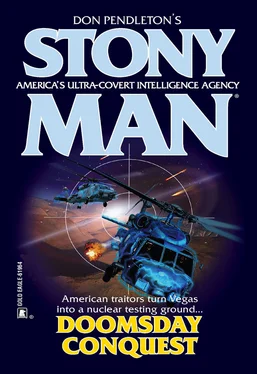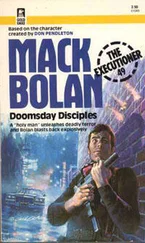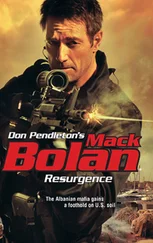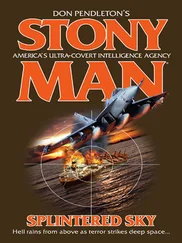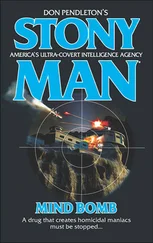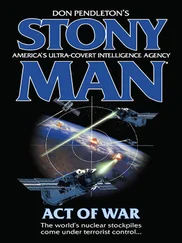Safe, yes, unless the celestial storm changed course and…
At least half the base was burrowed deep into the mountain range that rose from the plateau, the imposing peaks jutting higher, it seemed, forming a natural barrier the farther south they stretched to meet the northern edge of the Fedchenko Glacier, one of the world’s longest continental ice river. A final sweep, spying the concrete dome of the observatory looming dead center from the roof where its telescopes—Russian versions of the American Hubble, he knew—monitored the coming tempest, and Kolinko fastened the com link over his black beret.
His team of astrophysicists, he recalled, believed they had pinpointed the core source of the space ore. Give or take a thousand light-years, they claimed its origins in something called the Eagle Nebula, recent but evolving star formations about 6,500 light-years away in a stellar region called Serpens, near the Star Gamma Scuti. Whatever its genesis, for a moment Kolinko wished the observatory a silo, imagined the scope magically morphing into a nuclear warhead, a time-delay fuse that would erupt a thermonuclear blanket, all but vaporizing the extraterrestrial stew.
Kolinko swept back to reality as he felt the icy touch of rotor wash slashing his face. All set and ready, but for what? he wondered, grunting as he bent his head, forging toward the lead transport chopper.
Watching the first two transports lifting off, he suddenly found something both fearsome and absurd that a simple soldier should be forced to confront, much less explain the improbable and the preposterous. Boarding the Mi-26, he realized he was touching the emblem on the front of his beret and wishing what they were going to encounter was as simple to explain as lightning.
FAYSUD DOZMUJ WAS ashamed of his comrades.
As he cradled the AK-47, watching the caravan of mules and horses from the rearguard, he began to consider how much different he was than his fellow clansmen. One disturbing for instance, he wasn’t a terrorist, much less a cold-blooded killer, as many of them had proved themselves to be. The fact he didn’t carry a heart pumping with murderous wrath round-the-clock like his cousins for any human being other than Tajik—especially Russians and westerners—left him wondering if he was better than the others, or simply weak. Granted, circumstance dictated the road many of them had chosen, but the circumstance of the desperate poor or the oppressed—as they saw themselves—was a sad and sorry eternal plight the world over.
Always had been, always would be.
The blood of the innocent, he knew, was on many hands here in the Grbukt Pass. Be it Israel, Iraq or Kabul, and as family men themselves, did it not prey on their minds that they had shattered the lives of lambs who only wished to live in peace, perhaps slaughtering children and thus extinguishing future bloodlines? Did they not see that their violence and brutality made them an abomination in the eyes of God? Was there not one even half-righteous man among their lot?
And how did they see him? As a coward, always making himself scarce when an ambush was in the wings, having never fired a shot in anger against their hated Russian oppressors?
Shucking the heavy wool coat higher up his shoulders, he shivered against the icy wind that howled like a thousand banshees, or the giant hairy almasty, he thought, the man-thing rarely seen but often heard baying from the black depths of mountain forests. He sidestepped another pile of dung steaming in the snow, thinking this was the last time he would follow his cousins when they hired themselves out as drug mules for men, he knew, who clearly had no regard who suffered, directly or indirectly, from the evil they peddled, as long as they lived on, rich-fattened swine indulging their every vile transgression.
It wasn’t the long and dangerous drive by truck to the border, picking up something like two to three tons of heroin from Afghan warlords and their corrupt Russian counterparts each trip. The consignments were paid for in advance, their tribal leader, Ghazin, having won the trust of Russian gangsters long ago to deliver the cargo to designated rendezvous points in the Pamirs. Nor did the grueling three- or four-day march on foot when they were forced to abandon their vehicles in exchange for pack animals to trudge out the final leg of the journey bother him. Hardship was an accepted way of life for the Tajik.
Rather, it was his fear of God and the dreaded loss of eternal Paradise that disturbed him to no end, his heart and soul burdened by the weight of guilt, far exceeding, he imagined, the combined load of burlap sacks now being hauled out of the gorge. Way beyond the earthly consideration of a few paltry American dollars, by which he could feed a family of seven during the coming months, his conscience admonished him that what he did was wrong in the eyes of his Maker.
No more.
This was his last journey for the Devil, aware that what he did only enabled the spawning of evil, that was gain of illicit money to advance the slaughter of lambs.
He was trudging up the rise, searching the forested high ground, wondering if any of his cousins could forsake this wrong and find redemption before it was too late, when the animals began crying, shuffling and bucking against their burdens. The line lurched to a sudden halt, his cousins cursing the beasts as the braying and snorting rose in what he sensed was panic. He was wondering if the animals were spooked by the sudden arrival of the two giant black transport choppers as they appeared, hovering over the tree line of the high plateau, Ghazin on the field radio, confirming, he assumed, the helicopters ferried the Russian gangsters, when the sky erupted in a brilliant white light. Something inexplicable happened next to the helicopters, Dozmuj watching, shocked, as what appeared like a web of blue sparks began shooting, dancing around the hulls of the choppers. A heartbeat and one of the choppers was thrown into a whirling dervish, then propelled, it seemed, by the shroud of blue lightning, aimed on a course to smash into the heart of the caravan.
Whether it was instinct or some haunting premonition of doom he’d gnawed on since the border, Dozmuj knew something far out of the ordinary was blanketing the sky.
Terror then gripped him as the animals burst in a pellmell scatter off the trail, his cousins shouting, torn between chasing after the beasts of burden and staring, frozen in fear, at the heaven’s spread of dazzling—
Fire?
Dozmuj backpedaled, the assault rifle slipping off his shoulder, falling to ground as his mind tried to conceive that he bore witness to a vast sheet of white fire blossoming but rolling like ocean waves in a great storm across the width of the sky. And it powered the heavens above into instant day, as if the sun had burst through the celestial blackness, light so piercing he was forced to shut his eyes, afraid for a moment he was blind.
When he opened his eyes, he found the world on fire, the seeing all but beyond any belief.
Shouts of panic flaying the air and animals braying loud enough to further warp his senses, Dozmuj turned away and ran.
“PULL BACK!”
For all of their—what was to him—incoherent physics babble, it hardly explained the blue lightning shooting from the comm and tracking station amidships the transport chopper. More conjecture than anything else, the best his science people could come up with by way of explanation was that the storm of space lava created a supercharged electromagnetic field. Highly charged alpha particles, the most powerful of ionizing agents, the way he understood it, were in the process of fusing, splitting deuterium nuclei as they collided, but somehow creating antienergy in the process. One of the end fantastic results was that the ore emitted EMP—electromagnetic pulse—similar, but vastly more powerful in ways they couldn’t yet explain than those produced by a nuclear blast. Had he believed in God, angels or even an afterlife, he might have agreed with his scientists when they referred to the phenomenon as Heaven’s Vomit.
Читать дальше
